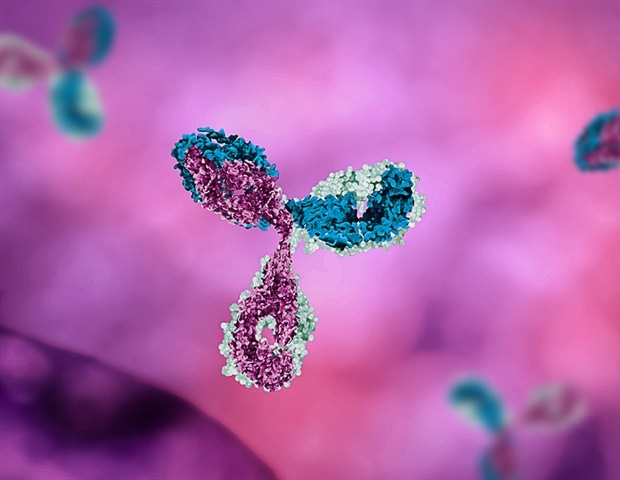Researchers at NYU Abu Dhabi have developed a new rapid testing method for COVID-19 – an adhesive bandage that relies on gold nanoparticles to quickly detect the immune antibodies in the bloodstream.
These antibodies, named IgM and IgG, are naturally produced as a result of SARS-CoV-2 infection, and therefore serve as valuable biomarkers to identify infected individuals and monitor the spread of pandemics. The innovative bandage technology is affordable and easy-to-use, and can be modified in no time to detect other pathogenic infections in future pandemics by using antigens specific to the emerging pathogens.
The test can be used at home by applying the special adhesive bandage to a pinprick fingertip, just like how we use a regular bandage to cover and protect the wounds. It works with nanotechnology-based engineered tiny particles, called gold nanoparticles, that are one billionth of a meter in diameter and have specific keys, called antigens, attached to them that are unique to the SARS-CoV-2. These keys are engineered using nanotechnology approaches to recognize and bind to IgM and IgG antibodies with high specificity and sensitivity, paralleled with key-lock mechanisms. When this occurs, a color change indicates the individual’s infection status –not infected or infected with early immune, active immune, or immune responses– within minutes.
The bandage comes at a low cost and is disposable, thus holding promise for large-scale detection and screening, including at homes, in public facilities, and in rural regions that have limited access to high-end testing facilities.
The NYU Abu Dhabi research team, led by Associate Professor of Mechanical Engineering and Bioengineering Mohammad Qasaimeh, explained the process of creating this new testing technology in a paper published in the journal Microsystems and Nanoengineering.
This user-friendly test quickly and accurately identifies the presence of IgM and IgG antibodies to the SARS-CoV-2, providing users with critical information about their immune response to the infection. Moving forward, we will explore the potential of this technology in detecting and screening other emerging viral infections. We also plan to incorporate biodegradable porous microneedles into the bandage, enabling efficient finger pricking via in-situ puncturing.
Muhammedin Deliorman, one of the first authors of the study and a Research Scientist in Qasaimeh’s Group
Furthermore, Imen Boumar, one of the first authors of the study and a former research assistant in Qasaimeh’s Group, added: “Our goal is to contribute to improved diagnostics and help individuals with their health management, ultimately enhancing our ability to combat and control infectious diseases on a global scale.”
Qasaimeh commented: “Importantly, real-time screening of viral infection using tests like the invented adhesive bandage can play a crucial role in preventing future outbreaks and pandemics by enabling early detection. In the future, if the large-scale usage of such adhesive bandage tests is combined with smart phone readouts and dedicated mobile apps, it opens up possibilities for generating location-based heat maps by local governments and health authorities to allow for the early identification of infected individuals, including those who are asymptomatic. By promptly isolating and treating these individuals, the spread of the virus can be significantly reduced, preventing it from reaching a larger population.”
Source:
Journal reference:
Boumar, I., et al. (2023) Spike- and nucleocapsid-based gold colloid assay toward the development of an adhesive bandage for rapid SARS-CoV-2 immune response detection and screening. Microsystems & Nanoengineering. doi.org/10.1038/s41378-023-00554-8.


